Polly Graham took time out between rehearsals & the production week of a community opera in London to talk with Cath Barton about her work, plans & dreams.
Polly Graham is an opera and theatre director based in Cardiff. She was mentored by David Pountney as Genesis Assistant Director at Welsh National Opera. In 2016 she directed Peter Maxwell Davies’s Kommilitonen! for Welsh National Youth Opera, followed in 2017 by a WNO main stage production of Frank Martin’s Le Vin Herbé. Critics have acclaimed the boldness, dynamism and inclusivity of her work. Earlier this year she was announced as the new Artistic Director of Longborough Festival Opera, which was founded by her parents Martin and Lizzie Graham in the grounds of their home in 1991, and has been run by them ever since.
Polly took time out between rehearsals and the production week of a community opera in London to talk with Cath Barton about her work, plans and dreams. Their conversation ranged from diversity, and reflections on singing in different languages, to plans for an opera in a car park in South-East London and taking a clown to farm shows in the Cotswolds.
Cath Barton: Tell me a bit about the production you’re working on right now.
Polly Graham: It’s Dido and Aeneas, with Blackheath Halls Opera. There’s a community chorus of seventy, plus children. All ages actually. Six performances in the Albany Theatre in Deptford. It’s really rewarding, I’m enjoying it.
Great. So what’s next?
Obviously I’m now quite busy with Mum and Dad’s festival and my own directing work, but I’ve also set my own company, Loud Crowd, and we’re going to be working with Bold Tendencies, an arts organisation which commissions all sorts of artistic work for the rooftop spaces of the multi-storey car park in Peckham Multi-Storey Car Park in South-East London. Next summer we are going to be putting on a redeveloped version of YOUNG BLOOD! – Kommilitonen! as was – in this car park.
Not Max’s piece?
It is Max’s piece – it’s with the permission of the estate that we’re going to change the name. We should have done that originally when we did that in 2016, no one could pronounce it. Probably it was a barrier for me when I first encountered the piece, so it must have been a barrier for other people. So we’re doing that next August. And as a kind of prelude to that we have got funding to do The Emperor of Atlantis there this September.
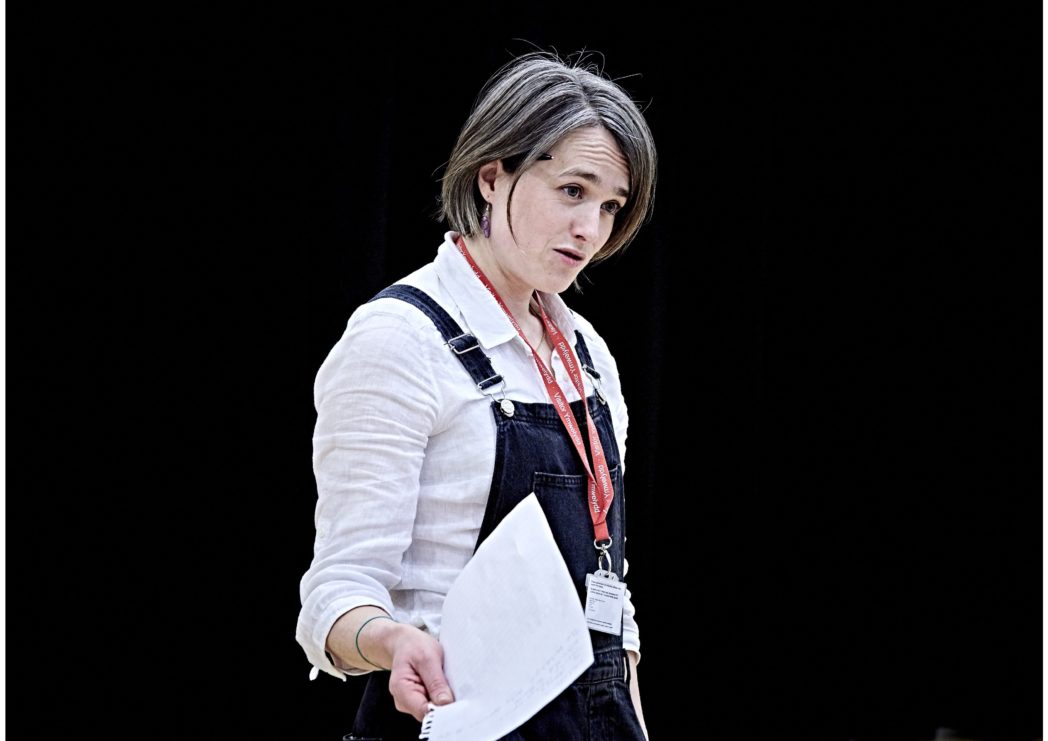
So you’re really firing out tentacles in all directions, and you’re already involved at Longborough?
It’s quite overwhelming. With Mum and Dad’s festival there’s a lot to do. I’ve been working on this season in so far as, for example, we had to recast Violetta in two days, so I did that. I’ve been going along to dress rehearsals, talking to the directors and so forth. There’s a lot of stuff that is invisible and things that have to be planned now that won’t be visible for a while. Next year is kind of set up but it’s not cast, so there’s a lot to do there and I’m really aware, going into it, just how much there is to develop structurally and it’s a balancing act between that and artistic considerations. I have programmed one thing for next year – I’ve asked Mathilde Lopez to direct La Calisto for the Young Artists next year. That’ll be a firework!
I saw there was one interview you did when you were appointed to Longborough in which you talked about your plans to expand the repertoire and bring more people in, and in the comments below someone said – ‘No, no, don’t change anything, I love it the way it is.’ There must be lots of people like that.
Of course. I think for the most part though, there’s no point in polarising your vision and demonising the audience and thinking that what you want is so different. And actually I think a lot of people just want to see a really good show, and that’s what I want too. So, for example, Daisy Evans just directed La Traviata and I was just so happy about it. It was a fantastic non-stop production, a real show. I felt it was a real achievement because there was no standing around and singing in a void, which is what really terrifies me. And we had great audience response to that.
Also I think a lot of people, the audience who feel part of the unique set-up of Longborough – and they really are part of it, they’re essential – understand that there need to be younger people coming in. I think that alongside their investment in it and their enjoyment of it they have the wisdom to appreciate that it has to be reinvigorated. And I’m going to do that carefully.
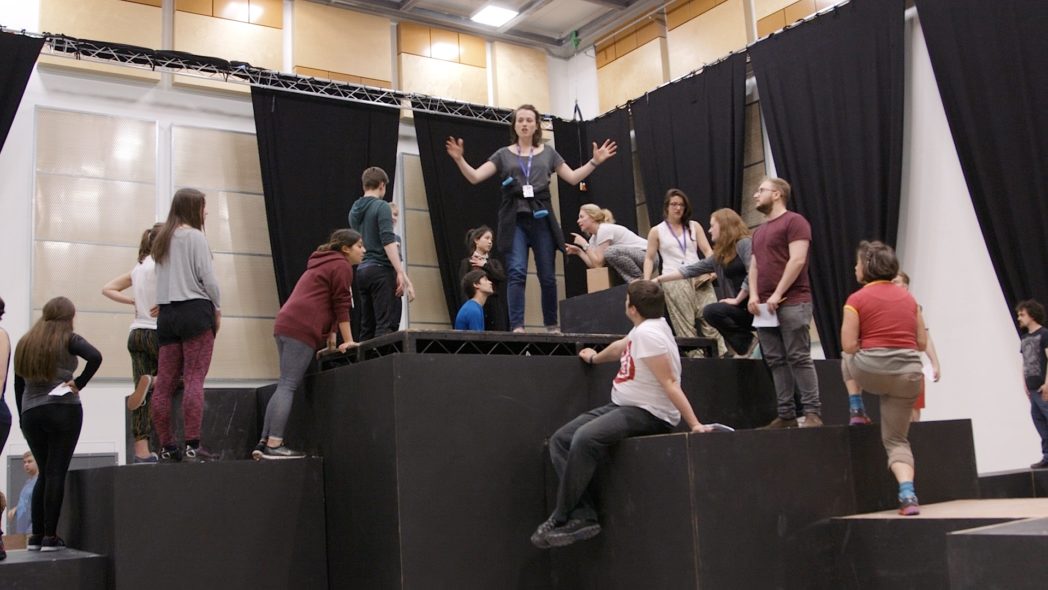
There’s a lot being said about diversity – or lack of it – at the moment, so can we talk about that? I thought that your production of Kommilitonen! was remarkably diverse.
Well, actually you know, it’s interesting you say that. Looking back I’m not so sure. When we decided to do it, Alice [Farnham – conductor] and I went to the educational department at WNO and said, look, we really think the remit needs to be very proactive about this issue, in relation to this piece, it kind of needs to be the keystone. There was also the separate issue of the character of James Meredith; dramaturgically his racial identity is so pivotal to the story.
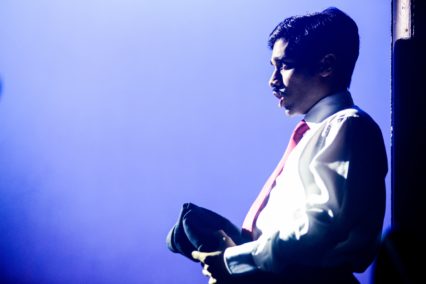
And basically to cast that role involved a lot of asking advice from different colleagues and I was delighted in the end with the performer who we had. But… I think that it would have been great if our ensemble had had wider representation. We did have about 25 to 30 nationalities in there, but there were no black faces in that ensemble and that is something that Alice and I had said we wanted to achieve.
What were the barriers to achieving that?
The barriers to that were the space of time between deciding to do the show and putting the show on, and the ‘difficulty’ of the music, and the process of recruitment that WNO had at its disposal. I would say its an infrastructural issue. Yes, I think we achieved loads and there weren’t just Welsh College students in that ensemble, there were kids of 16 who were just good at singing. You have to cast the net wide. Just the fact that no-one is there at the auditions doesn’t necessarily mean that they’re not there to be cast and in a way I think we got too preoccupied by the issue of Meredith himself and getting that right. I look back now and think that we could have done better with our ensemble. We’re already putting systems in place for when we do it again.
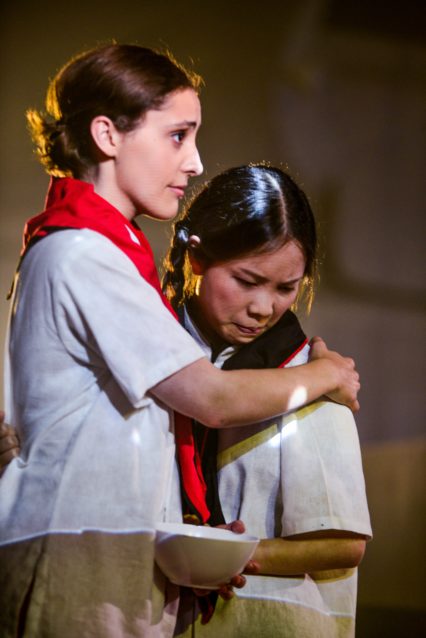
And being in South-East London it will be easier to get young black people involved, don’t you think?
Yes, but then again why are we saying that that will be easier?
Because there’ll be a bigger pool of young people in that area?
Mmm. Here in Cardiff there are loads of kids who aren’t white who could have been in Kommilitonen! So I do think that it’s infrastructural, but I also look back and think actually I should have got less distracted by some other issues.
So when you do it next year, will you have a longer preparatory period? Though of course you will still have financial restrictions.
We have got financial restrictions, in a way more financial restrictions because we’re not a big organisation with the resources to deploy. But partnering with Bold Tendencies is great because they’re really embedded in Peckham and they do a lot of very considered work with the communities there already. And I’ve approached a couple of youth choirs about it. We’re talking strategically at the moment about how we’re going to address this; it’s something that we all really feel is imperative to the casting.
While we’re talking about this I’m thinking back to how we cast Le Vin herbé. Tristan and Iseult are opposites in so many ways in terms of character and the way they choose to be in the world and there is a kind of magnetism, there is a real love across the divide in that story and I was very happy that we, in a way, achieved that in our casting as well, though I’m not even sure how Tom [Randle, who played Tristan] identifies racially, so it was a happy accident, a really interesting extra thing.
I think you have to be almost more careful when you’re making a literal period piece. I was interested to read the criticisms of Rhondda Rips It Up! The reason that it’s meant to require our attention is that it’s about celebrating a step to overcoming an injustice, and it’s quite simplistic to just be looking at that one step without looking at the other intersections of oppression. One of the criticisms made of that production was that it was all white. Well, In Parenthesis was an all-white cast as well and I don’t think it was criticised for it. Actually I think it’s a justifiable critique that no-one thought about it in the casting of that show. I do think it’s important to keep in mind issues of visibility, representation and inclusion, to consider what kind of atmosphere you want to cultivate.
It is something I’m trying to take forward at Longborough. I am thinking about diversity in the casting and everyone has to think about that. What it comes back to is, if you think this artform is worth all this time and effort you must believe that it’s worth it for everyone, and if you don’t you should just walk away.
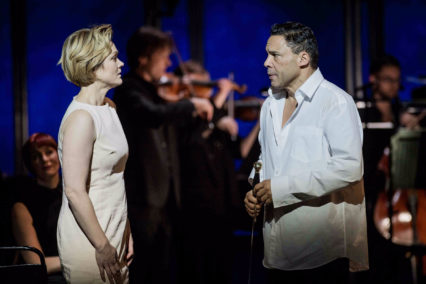
So, thinking long-term now, what is your ultimate dream?
I just like to keep making work. I’m happiest when I’m making a show. It’s all the stress of getting to that point which is not at all dreamy. I think everyone would tell you that. The work in the rehearsal room is the easy bit and the hard bit is all the other stuff.
I had a fantastically lucky upbringing and it opened my eyes to the expressive powers of theatre and music and I want more people to engage with that and I want more people to feel moved by those incredible stories and incredible sounds. I suppose my ultimate dream for Longborough is that it’s a place of international excellence in terms of the artistic output but that it’s really embedded in its community. Both of those things already exist, but I want to develop them further.
We had about 250 children come along to the dress rehearsal of Traviata and they all left crying and weeping and swearing about their mascara, and it was just brilliant, but then you think but okay, if their parents want to come where’s the point of access for them and how on earth could they? Because although there are a lot of very affluent people who live in the area I grew up in, there’s a lot of people who aren’t. And I know that because I went to school with them and that’s a point of non-engagement at the moment. We do a lot in schools but including other groups of people and finding a way that they can come in if they want to is something that’s not solved at the moment.
I also think that it’s not necessarily about bringing people into the show, it’s also about bringing the shows into the context of other parts of community life. We’re doing a new Ring cycle at Longborough next year and I’m developing a kind of… not an alternative, I don’t really know what it is, it’s a kind of story-telling project which will involve a fantastic clown and I want it to happen at all the farm shows.
Will that be a kind of taster?
Kind of, but over the four years we’re hoping to tell the whole story of the Ring in this way as well. I’m kind of hoping, and this is a mad dream, that when we do the final Ring cycle, we’ll also maybe have some kind of event where all the people we have worked with and reached over quite a long time will all come together, so we’ll have the Ring cycle happening and then another version alongside it. I think you have to think really creatively about giving people access and work out the economics around that.
Thinking about the way you work, I’m interested that you’re quoted as saying that you see no difference between theatre and opera.
They are one and same thing, but the practice of them sometimes falls woefully into different camps. For me singing is just another form of heightening. If I did a play in Chaucerian Middle English there would be a barrier and a kind of awe. It might heighten and distance the work – an alienation effect – but it would still be a play. Well that’s exactly how I see someone singing as opposed to speaking – it’s just another way of heightening the drama. Ultimately it’s about the elements that go into making a good show.
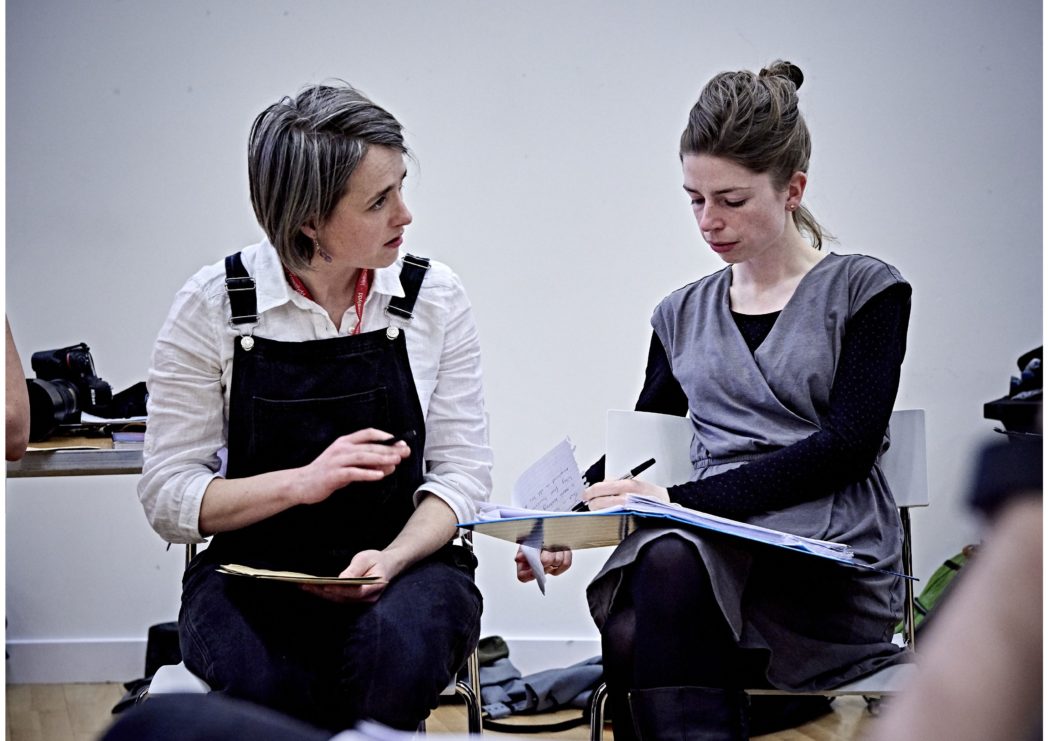
So do you direct straight theatre as well as opera?
Well I would love to do more. I did an R&D on a play in April that I loved, written by another ex-WNO colleague, Sophie Rashbrook, and actually Unheard Voices: CREW (which I created with four stage hands, a pianist and David Pountney) was a devised play. And I’m currently working on a new play with Emma Jenkins (who wrote Rhondda Rips It Up!). The plan is to do more.
In terms of your career is that a problem? In the industry, do people see you as an opera director?
It’s more that it’s really hard. Theatre directors are brought into opera but it doesn’t work the other way if you’ve gained more success directing opera rather than theatre. In my case this happened to me rather by accident, basically a very lucky opportunity to get that Genesis thing, which was unequivocally a yes for me, I had an 18 month old baby and we couldn’t find a flat in London – so moving to Cardiff was a liberation for us! And it was a fantastic opportunity.
The association with opera makes it difficult to cross back over. But also I think quite honestly it’s been a confidence issue for me. Although I genuinely believe my work is good, one is always insecure and, faced with the scepticism of the entire theatre industry, you can think – maybe I’m not that good. It’s something I’ve actively decided to overcome by doing this play with Emma.
And are there other things that can get in the way, obstacles to your career I mean, dangers in your path?
I see the biggest risk now in the work I’m doing is finding a way to balance it with my family life. The difficulty of maintaining a family and a healthy happy life with the hours and the distance and the pressure that you put on yourself. I’m determined that it’s not going to sabotage my family but I can say that that’s the biggest danger.
Like if you were asked to go to Australia for three months, for example?
Funnily enough I was asked to go to Australia next year and I had to turn it down. Actually it’s a good experience to put your work at a distance and try and be measured about it, to try and think it’s not going to be the end of the world if you don’t accept this, but obviously you spend a lot of time trying to get jobs and then if you get offered a job and you have to turn it down that is hard.
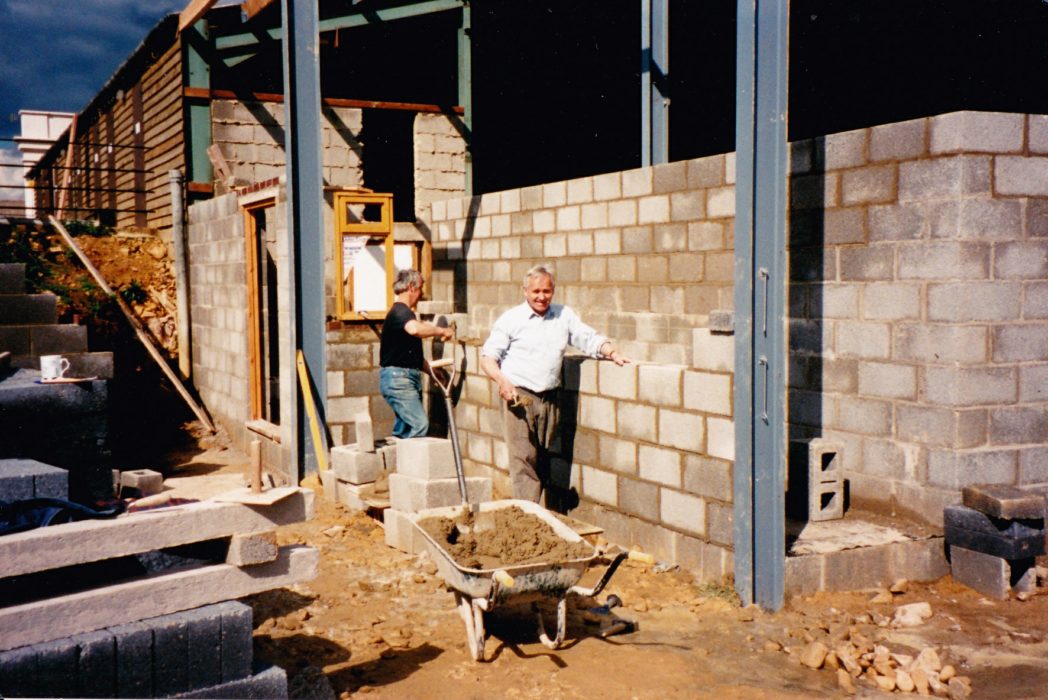
I’m sure. Let’s go back to the start of this journey of yours. Take me back, just for a moment, to what you remember of your first experience of seeing and hearing opera, at five years old.
I think this comes down to the inclusion thing as well. What grabbed my imagination when I was five was not actually performance, but watching the preparatory process for that. I’ve always been someone who’s found groups of people working together incredibly compelling and seductive and it was that that made me hooked – and then seeing the end result as well of course. But it wasn’t just that I got sat down and saw people singing or telling a story and then I was like oh wow that’s great, it was more the messy details of the smash bucket for sound effects and no-one’s got the right pair of trousers and all of that kind of thing.
I think that is something that’s really important, going back to issues of inclusion. We want to allow more people – urge more people – to consider themselves to be audiences but actually but I think that understanding of how the whole thing works gives you the vocabulary to be an audience member, a richer understanding which you don’t have if you just get popped in front of something.
But not many people have that opportunity, at the moment.
And of course the great test of a show is the first-time buyer and how it can deliver, communicate and be precise, though I recognise that if you’re a first time audience member you’re not necessarily accustomed to listening to a large orchestra or singing with a lot of vibrato, let alone other languages. There are things which need to be deconstructed creatively to give people more access.
What do you think about language?
I think that each show and each context needs to have a decision based on that. My husband’s a translator and I’m a not very good but very enthusiastic speaker of other languages so it is something I’ve thought about a lot. On the one hand we can say languages are a barrier. Obviously we’re sitting here in Wales and my children are educated in Welsh, but the UK as a whole identifies quite mono-linguistically, which is incredibly ignorant and stupid. The way we teach languages, not in Wales but in England, is really lamentable. Living in Wales, combined with my work in opera, has made me realise that languages aren’t that difficult if you are encouraged to understand them in the right way, from an early point.
That’s not to say that I think that shows shouldn’t be performed in the vernacular – I think that can be fantastically useful and brilliant, but sometimes it’s also very exciting to hear opera in the original language. I think it’s important to empower people and say, this is for you as well. For example, in Donizetti, those historical pieces like Anna Bolena, the language is so entwined with the music-making and obviously they are bel canto – if you took the Italian out of Donizetti I think it would render it less beautiful, but in other contexts you can definitely add something by translating.
On the other hand I think that one of the great gifts of opera is that it can open our eyes to different cultures.
What about new translations as well?
Yes, with Atlantis I’m working with Max Hoehen who’s making me a new translation and that’s really enriching and interesting, you can invest ideas into the language.
Have you ever thought about doing something where you mix up the language?
I think you have to have a really clear reason for doing that. I was actually offered to do Seraglio, but the company were insistent that the dialogues were in English and the singing was going to be in German and at the time I didn’t feel comfortable with that, there was no coherent whole to it. It smacked of oh, we’re singing, so we have to sing in the right language. It felt like it was starting from the wrong point. But in another context it could be really interesting. I also think that one of the great things about performance is that people can engage on a non-semantic level anyway, and with music.
Yes, interesting. So, to finish up, if there anything else you’d like to tell me about the way forward for Longborough, as you see it?
I’m really thinking about new commissions, and how to sell that to the audience. It’s funny because, as I was saying earlier, before I actually started I had a lot of artistic ideas, and now I’m almost, not blocked, but there are so many infrastructural things like the fact that we need a bus, or a better greenroom to improve company morale, issues which are now almost more important to me, and I need to find the balance between the two. Actually I think it all connects because, for example, I really think we have to have a bus to allow more artists to work with us in an easy way.
We’re in an area of outstanding natural beauty and there’s a huge environmental issue to do with our model: people drive their cars and if you haven’t got a car how do you get there? That shouldn’t be the case, we have to be really active about facilitating people to not have a car.
So it has to be this really special place which is making really special amazing work, but the people who can access that dream should be really varied in terms of who they are. I want us to move further towards really simple things like wear what you want. We’re at a really basic level. There’s a weird paradox, because my Dad could not be less establishment in terms of his background and his behaviour, but he’s never thought about inclusion in the modern sense. So we have all these tropes of the country house opera which can be incredibly damaging and I think, don’t do us justice as an organisation because we’re way more weird than that. We’re a really unique, bespoke, bizarre set-up and that’s what I want to celebrate, and I think that it is possible for anyone to take part in that.
I shall have to come!
Yes, you should!
Thanks Polly, it’s been great to chat.
Header photo of Polly Graham © Jorge Lizalde
Cath Barton won the New Welsh Writing AmeriCymru Prize for the Novella with The Plankton Collector, which is published by New Welsh Review under their Rarebyte imprint. Her second novella, In the Sweep of the Bay, will be published by Louise Walters Books in September 2020, and in early 2021 Retreat West Books will publish her collection of short stories inspired by the work of the Flemish artist Hieronymus Bosch.


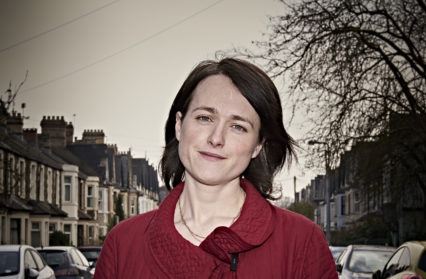
 Enjoyed this article? Support our writers directly by buying them a coffee and clicking this link.
Enjoyed this article? Support our writers directly by buying them a coffee and clicking this link.







